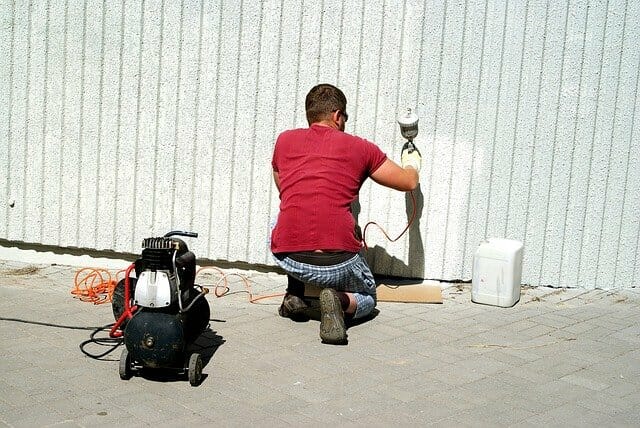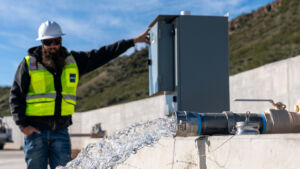Cost-saving has become a very important area across all industries today. While profits have always been important, and cash flow vital, the last year has shown the importance of running a lean efficient business.
Protecting a business’s assets is often more cost-effective than replacing them. There are plenty of things you need to know about industrial painting if you are in industry. Firstly, industrial painting improves the aesthetic value of office buildings, warehouses, pipework, and the like.
But, it does something else too. Industrial paint and other types of coating can help to protect the assets they are applied to. However, there is another area that is of equal, or maybe, greater importance.
Before any coating can be applied, the surface should be inspected and tested. Why is this important? Read on to find out just how vital this action is.
What is a Coating Inspection?
After industrial paint or any type of coating has been applied, it is necessary to check that the work has been done properly. In many cases, this isn’t a straightforward job.
Assets that need inspecting may include bridges, smokestacks, highways, and railways. The inspection takes place to ascertain that the coating has been applied correctly and will perform well.
The coating inspection will involve various tests using specialist tools from suppliers such as MTest. These will include non-destructive testing to determine the thickness of the dry film of the surface.
The inspection will look for chipping, flaking, or bubbling, of the paint. In general, the coating inspection is there to ensure that there are zero vulnerabilities or signs of corrosion.
Why are They Important?
Employing a contractor to apply coatings to assets can be an expensive task. In the past it was considered wiser to deploy much of a company’s budget elsewhere, However, today, more businesses believe in protecting their assets and aiming for a longer life.
This means applying paint to protect the company’s assets. Due to the cost of industrial painting, and its purpose, it is necessary to perform an inspection after.
Corrosion is a problem with assets of all types of nature. In Arizona, they have had a debate about using stainless steel pipes to avoid corrosion, and extend the life of said pipes. In many other industries though, protective coatings are more practical.
Without an inspection, it is impossible to determine that the painting contractor carried out their job correctly.
Who Carries Them Out Normally?
For industrial painting, a company would almost always hire a contractor. This company would be experienced in applying a coating to a range of assets. They can cope with large-scale structures and buildings and are trained in ropework and working high up.
Afterward, this contractor would ideally want to check the quality of their own work. Most, but significantly not all, contractors would employ their own coating inspector. It is this person’s role to test and review the work that has been finished to the level expected.
There are two issues here for the business that has engaged the contractor. Firstly, there could be a conflict of interest for the contractor’s inspector. Secondly, people make mistakes, and sometimes a second opinion is worth having.
Do Companies Employ Their Own Coating Inspectors?
These inspectors will not only check surfaces after coatings have been applied, but they will look at the preparation beforehand. This is why some businesses will choose to employ their own inspector.
Having a coating inspector employed full-time is useful for a large company as they will receive impartial advice that is not linked to an outside contractor.
How Often Should an Inspection Take Place, and What is the Frequency?
A company looking to protect its assets may expect its in-house inspector to be routinely checking different assets as part of its permanent role.
More often, a coating inspector will check the surfaces prior to contractors being called in. They will need to make sure that all surfaces are suitable for having new coatings applied. As you have already read above, they will be expected to inspect and test these surfaces once more after the contractor completes the task at hand.
As for the frequency of the inspections, this is a difficult question. Ideally, 100 percent of all the surfaces of an asset would be inspected. Realistically though, this is not always feasible.
An inspector would have an ongoing role during the cleaning and painting stages, but if no problems were arising the frequency of this testing may drop. However, there are certain areas such as joints, and other areas that commonly have problems that will be inspected thoroughly.
What Tools are Used for Coating Inspections?
There is a wide range of coating inspection equipment that can involve lasers, thermometers, cameras, and even mirrors.
Some of the tools used for coatings inspections are below:
• Basic camera
• Inspection mirror
• Magnetic surface thermometers
• Anemometers
• Adhesion testers
• Coating thickness gauges
• Digital psychrometer
This is a small taste of the number of tools and gadgets that a coating inspector may use. The tools at an inspector’s disposal include commonplace items such as a regular smartphone to take photographs, to laser-based ultrasonics to test for surface thickness.
Can Coating Inspections Extend the Life of Your Assets?
The importance of coating inspections should not be ignored, as their main purpose is to extend the life of any asset in the business that comes under their remit.
Some of the assets that have protective coatings and industrial paint applied to, cost millions of dollars. Using coating inspections, and protecting assets surfaces will always help to extend the life of assets.
Who Uses Coating Inspections?
All manner of different industries use coating inspectors. The construction industry, along with engineering projects, would use coating inspectors regularly.
Large-scale projects such as bridges, highways, and railroads, all use coating inspectors. Companies use them to protect their own assets such as pipelines, industrial chimneys, flare stacks, incinerator stacks, and smokestacks in general.
Any business that requires industrial painting and protective coating projects fairly regularly should consider hiring their own inspector. Small companies can rely on contractors to carry out evaluations of their work, but a company with vast assets should have its own independent assessor.
Any business looking to hire their own staff should check that they are hiring a NACE-certified coating inspector. Hiring one of these qualified inspectors may save the company millions of dollars in the future.
Summary
Many businesses may underestimate the importance of a coating inspection. However, when large, complex assets are involved, such as high heat stacks, protecting them is vital.
The paint projects involved when it comes to heat stacks are immense. It involves highly skilled individuals with experience and training in high rope work. The results afterward should leave the business with aesthetically pleasing assets, instead of a deteriorating eye-sore.
If coating inspections aren’t used though, the hard work of the painting contractor could be somewhat wasted. Surfaces need to be cleaned and inspected to make sure the coatings will perform as they were intended.
If coatings aren’t examined, there could be vulnerabilities that lead to corrosion, and ultimately, repair work, or even replacement further down the line.




